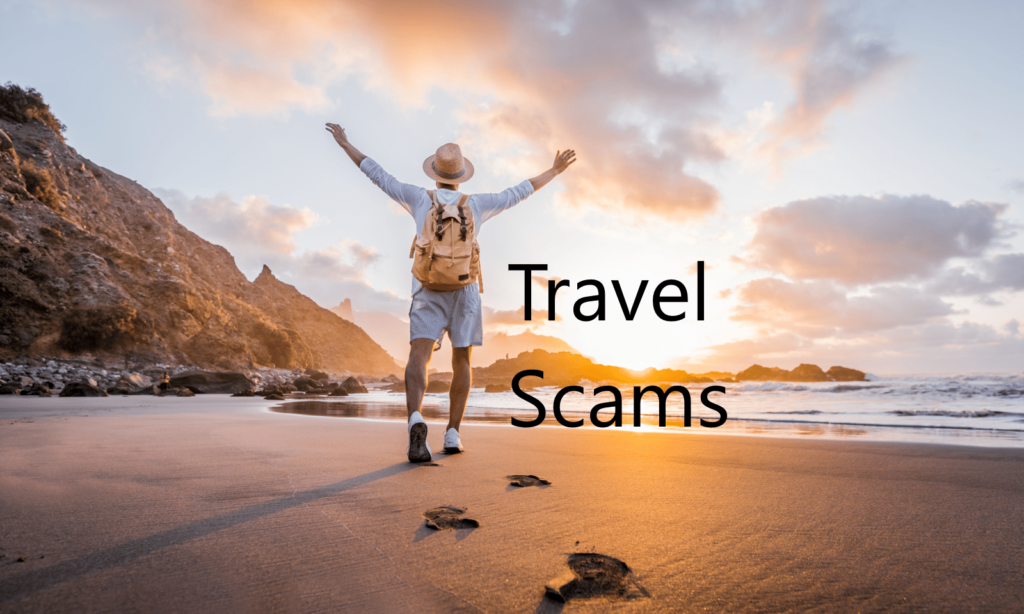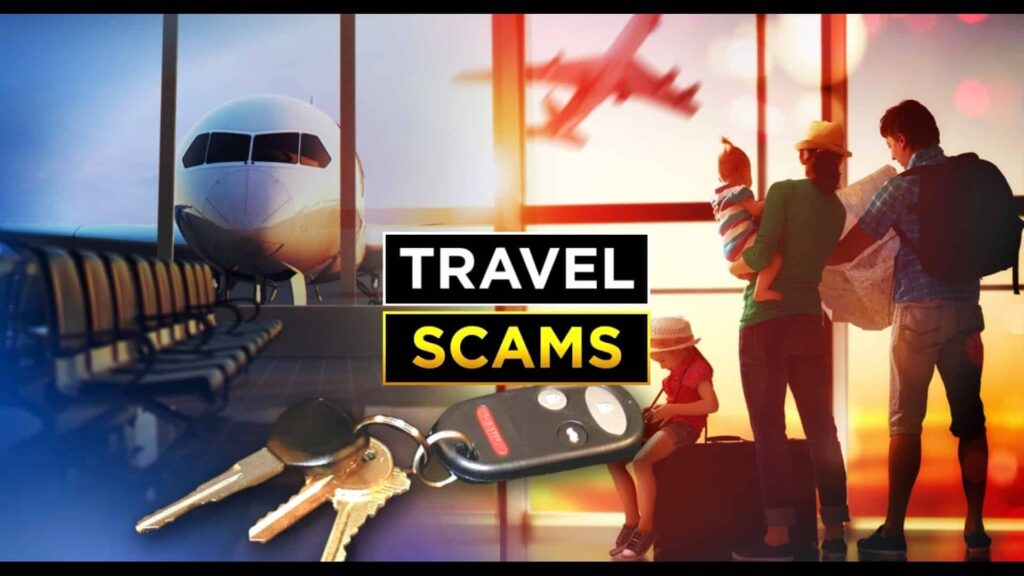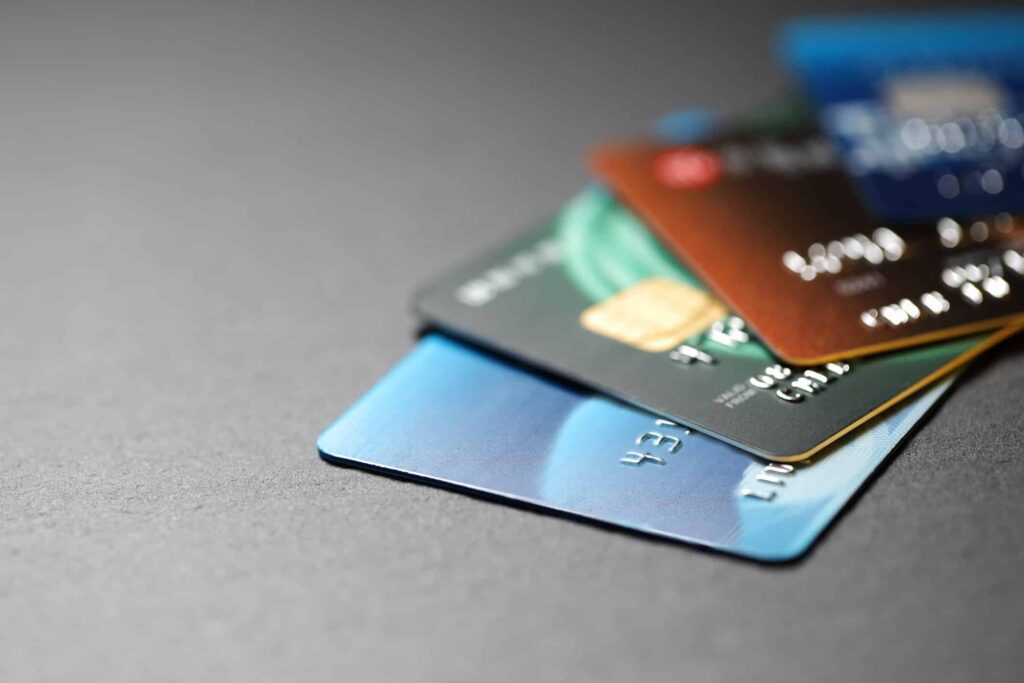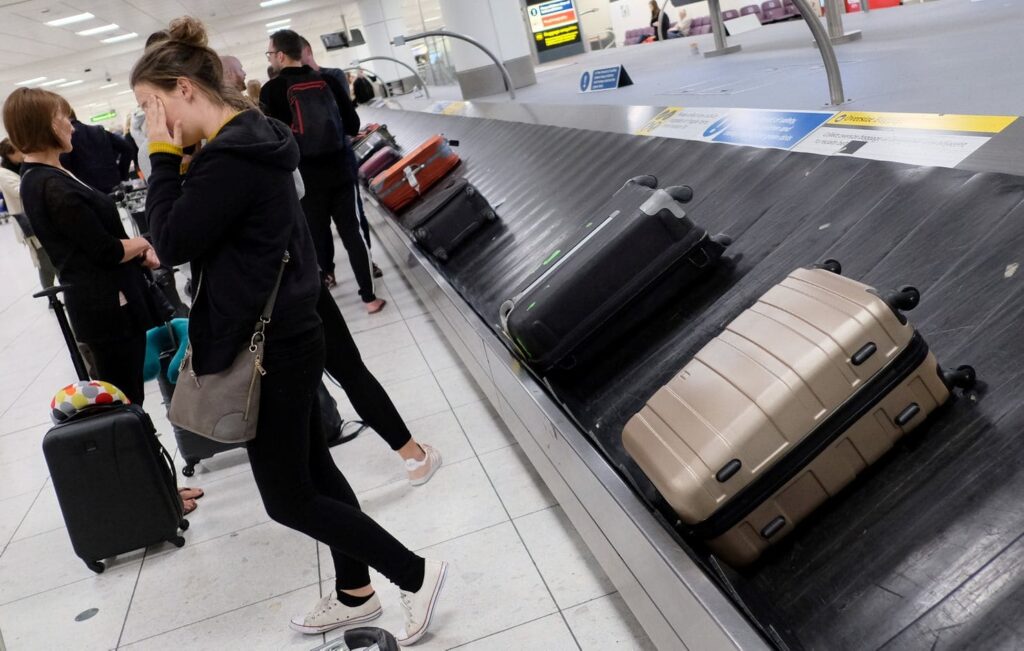During our first trip to China, we fell victim to a scam. That’s when we saw how fragile tourists are on their trips. We’d like to help you avoid similar situations. So, here is a list of common travel scams to watch out for.
Note: You can find more helpful travel tips on our Travel Resources page or LGBTQ+ Safety guide.
Our list of the leading Travel Scams
The taxi overcharge
Beware of taxi scams where drivers claim the meter is broken and charge exorbitant rates. Know the standard fare beforehand and report any negative experiences to the tourism board. Stay away from unlicensed cabs, and ask hotel staff to arrange transportation if they need clarification on reliability.

©
The shell game
We always see how people fall for this one, and we’ll never know. It’s such an old and obvious scam. It’s in movies, for heaven’s sake! You’ll see people on the street playing a card game (sometimes known as three-card Monte) or hiding a ball in a cup and someone guessing where it is and winning money. Then you decide to play — and you win! Thinking this is great, you bet more money and then lose repeatedly.
Come in for tea.
The following Travel Scam is perhaps less evident at first sight, but it is equally unpleasant, trust us! It’s essential to be cautious when traveling and to avoid falling for scams. One common scam in China involves a woman inviting you to try a tea ceremony. It’s best to avoid following people to a second location or believing sudden stories to avoid getting into trouble. Suppose you do find yourself in a situation like this. In that case, it’s essential to stay calm and report it to the authorities if necessary.
Your accommodation is “closed.”
The next one is for sure one of the most common travel scams. When traveling, you must be aware of scams, such as cab drivers insisting that your hotel or hostel is overbooked or closed. It’s best to ignore them and insist on going to your destination as planned. If they persist, continue to press, and they will usually back down. It may seem like a scam no one could fall for, but it happens more often than you might think. Stay vigilant, and don’t let anyone take advantage of you.
A note on taxis: We have our power back in this smartphone era. We’re no longer helpless because we can look at a map and see the correct route. We like looking at Google Maps and seeing the best courses. If they aren’t taking it, we’ll usually point to the map and insist they go that way.
If we are going to a country without phone access, we download the map onto our phones. Your phone’s GPS will work even if you don’t have a connection. Additionally, ride services like Uber hold drivers accountable, significantly reducing the likelihood of being cheated.
How To Avoid It:
Remember to contact your hotel before arrival to confirm their operational status and inquire about shuttle service. If taking a taxi, assert your rights and insist on being taken to your reserved hotel. Stay safe while traveling. Let me know if you have any questions.
Free bracelets/rosemary/anything they can put on you.
Stay aware of common travel scams, such as someone placing an item on your body and demanding money. Remove the object and be cautious of accepting anything for free from strangers. Fake monks selling bracelets are not a legitimate practice. Stay alert and safe; let me know if you have any questions.
How To Avoid It:
Stay alert while traveling. Don’t accept anything for free, and avoid letting anyone put anything on your body. Ignore anyone selling bracelets claiming to be a monk – it’s likely a scam. Let us know if you have any questions. Stay safe.
Attraction Is Closed
Be wary of friendly locals who claim tourist attractions are closed in significant areas. It may be a scam to guide you somewhere else to purchase something or pay more. Always double-check information and follow your itinerary to avoid falling for these scams. Ask me if you have concerns. Stay safe while traveling.
How To Avoid It:
Always double-check information and follow your itinerary to avoid falling for these scams. If you have any concerns or questions, don’t hesitate to ask me. Stay safe out there!
The spill on your clothes
Stay alert when traveling, and be cautious of strangers who may try to distract you and steal from you. Watch out for common scams like the “spill on you” and “poo-shoe” scams. Keep your belongings close and double-check the information to avoid these travel scams.
How To Avoid It:
When strangers try to distract you with spills or other scams, staying alert and cautious is essential. It’s best not to let anyone help you; instead, take care of the situation and yourself by going to a restroom to clean up. Remember to keep your belongings close and double-check the information to avoid falling for these tricks.
Motorbike scam
If this happens to you, don’t panic. It’s important to stay calm and firm. Double-check the motorbike’s condition before renting it, and take pictures of any pre-existing damage. When you return it, inspect it with the owner present and document any new damage that may have occurred during your rental period. If the owner insists on additional payment or repairs, calmly explain your documentation and stand your ground. If they demand your passport as collateral, suggest leaving a cash deposit instead. Remember never to let anyone hold your passport hostage.
How To Avoid It:
Document pre-existing damage, use your lock, don’t reveal your location, find a secure parking place, use a recommended repair shop, and get travel insurance. Stay safe!
Fake Bus/Train/Plane Tickets
When purchasing transportation tickets, being cautious of potential scams is essential. It’s best only to buy tickets from official ticket offices or websites to avoid being scammed by individuals selling fake tickets. Remember to stay safe and protect your money while traveling. This travel scam was waiting for us when we went to Paris, right at the airport. Convenient.
The flirtatious local women
When traveling, it’s essential to be cautious of locals who seem too good to be true. If someone promises to take you to the world’s best club, get you drinks, or is overly flirtatious, it’s best to be wary and protect yourself. Remember, just because you’re a foreigner doesn’t mean you’re more attractive or immune to scams. Stay vigilant and keep yourself safe.
The “found” ring
It’s essential to be cautious of strangers who try to sell you things on the street, especially if it seems too good to be true. If someone offers to sell you a ring with a mark “proving” pure gold, it’s best to be skeptical and protect yourself. It is a common scam in Europe, and it’s best not to avoid buying anything from strangers on the street. If it sounds too good to be true, it probably is.
The fake petition
When traveling, it’s essential to be aware of common scams and stay alert. One such scam involves people approaching you to sign a petition, often pretending to be deaf or a student. If you don’t understand what they’re saying, signing to end the awkwardness can be tempting. However, this is often a ploy to get you to donate money, and it’s best to refrain from engaging with these individuals. If you are in this situation, keep walking and don’t engage with them.
The drug deal went bad.
This travel scam is common in many developing countries, especially those with a lively party scene like in Southeast Asia. You’re in a popular tourist area, and someone offers you drugs. You say yes, and before you know it, a (honest) cop is on the scene! They threaten to arrest you unless you pay a fine (i.e., a bribe). You’ll spend the fix if caught red-handed rather than go to jail.
To avoid this scam, don’t buy illegal drugs in other countries!
The wrong bill
Stay alert while traveling and avoid common scams. Don’t engage with those who approach you to sign a petition, as it’s often a ploy to get you to donate money. Be careful when counting your change, as scammers may give you the wrong bills. Protect yourself from potential pickpockets or other dangers.
Fake Police Officers
Be careful while traveling and watch out for common scams like the fake police officer scam. Phony police officers will approach you, offering drugs and demanding your passport and wallet. Don’t hand them over. Ask for identification and confirm with the police, or say your passport is in the hotel safe. Always be cautious and walk away if necessary.
The switcheroo
It’s essential to be cautious while shopping, especially when selling designer items at a bargain price. Often, these items are knockoffs rather than the real thing. If you see a designer item being sold for a suspiciously low price, it’s likely a scam. Remember that if it seems too good to be true, it probably is. Additionally, closely inspect the item you’re purchasing to ensure it’s the exact one you want before handing over any money.
The ATM scam
Always be cautious while using an ATM, especially if someone approaches you to help you avoid local bank fees. Never let anyone near you while you’re making a transaction, and always cover the number pad with your other hand while entering your PIN code. If you suspect suspicious behavior, take your card and find another ATM. It’s better to be safe than sorry when protecting your finances.
Poor children & injured beggars
This is another widespread travel scam, which we all have already seen. When encountering someone asking for money on the street, being cautious is necessary. It is challenging to distinguish between genuine and not, so it’s best to refrain from giving cash. Instead, consider donating to a helpful charity or offering food or clothing. It ensures your money goes towards a good cause, not a potential scam or gang. Stay safe and aware of your surroundings at all times.

©
Fake Wi-Fi networks
It’s essential to be careful when connecting to accessible Wi-Fi networks that don’t require a password. Hackers may create hotspots that can compromise your device. Instead of connecting to any network, it’s advisable to verify the login details with an employee or check for official literature pieces that contain this information, like a menu. Stay safe and protected from cyber threats by being cautious and aware of your surroundings.
Fake USB Charging Ports
You have probably seen free public phone charging stations in post-security airport terminals. These airport kiosks are most likely safe to use because they are in a restricted location. But it would help if you were cautious about hooking up your phone to a public charging cable in shopping centers or other high-traffic places open to the general public.
The “juice jacking” scam may show your phone charging when you hook up the appropriate USB cable. However, the line may install malware onto your device to steal your personal information.
Fake currency scam
In cities with many currency exchanges near popular tourist attractions, a person might come up to you and ask if you want to change some money. They’ll offer you a fantastic rate and say they don’t charge commission. They might even tell you they work for an exchange place nearby or even have some name tag on. The money they show you is accurate, and they will show you all the ways it’s NOT counterfeit.
However, once you exchange some, you’ll discover that some of the notes (usually in the middle of the stack) are fake, but the person is gone by then. If it sounds too good, stick to reputable currency shops.
Group Photo Offer
Suppose the local offers to take a group photo of you and your friends. As you prepare to pose for your fabulous new Facebook jumping shot, you look up and realize your new friend has completely disappeared with your expensive camera.
How To Avoid It:
This one is tough. You need to read the situation. We happily handed my 3000 Eur camera to other people for a group photo. But it’s almost always me asking them for the favor, not them offering out of the blue. Busy city attractions are the riskiest places for this; if you have to, ask fellow tourists instead and return the favor for them.
Travel Scams – The conclusion
The truth is that no matter how prepared you think you are, you’ll eventually fall for some travel scam. But don’t let this deter you from traveling the world. It’s just a learning experience. At least, that’s how we look at it!
Chances are you’ve been scammed abroad at least once. It happens. But, to avoid getting ripped off in the future, be wary when people offer you something in a touristy setting. Ultimately, we invite you to share your travel experiences with us.



